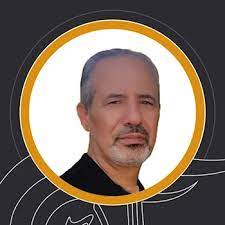More than two million Muslims stood on Mount Arafat this year in response to God’s command to perform Hajj for those who are able to do so, to perform the greatest pilgrimage at the same time in the same garments, facing the same Qibla, and praying to the same Lord. This reflects an image in which mercy is apparent, as it shows Muslim unity and cohesion, as a solid structure supporting each other in compassion and love.
That’s what we can see on the outside. Inside, though, tells a different story, as the Muslim world is in turmoil. The painful reality is that the Muslim Ummah is witnessing the brutal massacre of the Palestinians in Gaza at the hands of the Zionist occupation state. Muslims also face brutal persecution and torture in China, India, the Philippines and other countries around the world.
Hajj is a divine command, a journey to perform the greatest jihad, which represents a reformulation of the Islamic Ummah’s self. It is the greatest devotional gathering on the face of the earth that reflects the cohesion of Muslims and the unity of the nation, despite the divisions into various states and mini-states, and global spread; despite all of this, Hajj remains the meeting point for Muslims. The enemies of the nation fear that Muslims will realize the true meaning of the pilgrimage rites and their essence, and become stronger as a result.
During the time of Prophet Mohammad, peace and blessings be upon him, Hajj had other purposes. It was considered as a general gathering for Muslims to spread the teachings of the faith among the pilgrims. As Islam spread around the world, it became a time for discussion of the issues facing the Ummah.
However, after the dissolution of the by then weak Caliphate over a century ago, increasingly close relations with the enemies of the Ummah saw the gathering lose this important aspect; support for Muslims in need and danger around the world is now absent. It is hard to believe that the Saudi imam giving the sermon to the Ummah gathered at Arafat did not spare even a few words to denounce the brutal Zionist aggression against the Gaza Strip and Israel’s massacres of the Palestinians. It is as if the Ummah offered Gaza as a sacrifice during the Hajj.
It was shameful to see this example of normalization with the enemies of the Ummah, when the tide has turned and the enemy has become a close brother, while our brothers have become the enemy. In this context, it shouldn’t have been a surprise that the imam did not pray to God to support the people of Gaza. Instead, he prayed for Saudi Crown Prince Mohammed Bin Salman, who stands with the enemies of the nation in the trenches against his brothers in Palestine.
In his farewell sermon, the Messenger of God, peace and blessings be upon him, formed the general structure of Muslim life with comprehensive and conclusive words:
“O people, just as you regard this month, this day, this city as Sacred, so regard the life and property of every Muslim as a sacred trust. Return the goods entrusted to you to their rightful owners. Hurt no one so that no one may hurt you. Remember that you will indeed meet your Lord, and that He will indeed reckon your deeds… Do treat your women well and be kind to them for they are your partners and committed helpers. And it is your right that they do not make friends with any one of whom you do not approve, as well as never to be unchaste… I leave behind me two things, the Qur’an and my example, the Sunnah, and if you follow these you will never go astray.”
Such reason and guidance cannot be found anywhere else in the annals of history. When solidarity institutions are established in a nation, that protect and care for humanity, this means that the nation has been blessed with reason and achieved glory. The Messenger of God, peace and blessings be upon him, left three institutions of great cohesion and strength: the family, society and the state. A nation cannot be established, sustained or protected unless these three sanctities are protected: blood, wealth and honour. Hence, these three sanctities are given great care and attention, not only through direction, guidance and enticement, but also by setting rules, restrictions and punishments for crimes against individuals and society.
Someone once said to the great Companion and Caliph Umar Bin Al-Khattab during Hajj, “There are so many pilgrims.” Umar looked at the pilgrims and replied, famously, “There are many passengers, but few pilgrims.” Yes, the number was large, but few of the pilgrims understood the meanings of Hajj in their hearts. The different between a pilgrim and a passenger is the same as that between those who pray and those who perform prayer. Those who pray go through the movements, but those who perform prayer do so with humility and presence of the heart.
There is also a great difference between the true purposes of Hajj being absent within the Muslim Ummah and when they are present, as there is a resurrection of what has been lost amongst them, but most people do not understand.
-Dr Amira Abo el-Fetouh is a dentist and a political commentator. Her article appeared in MEMO.












